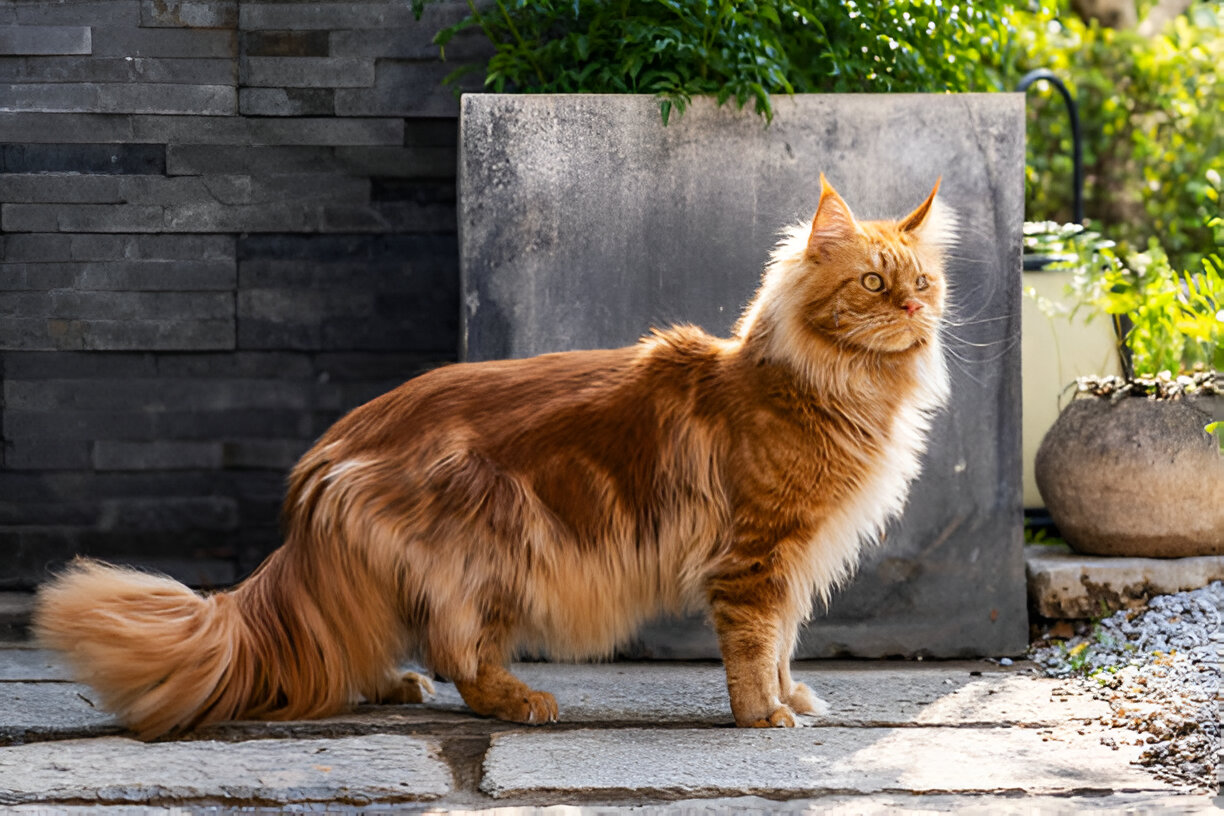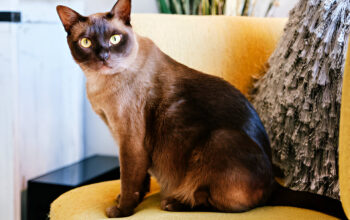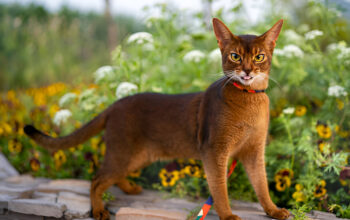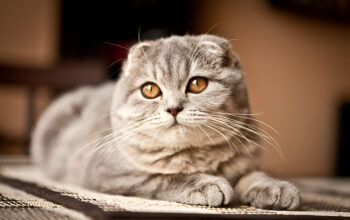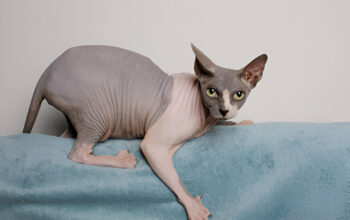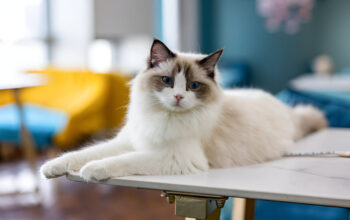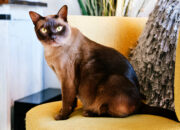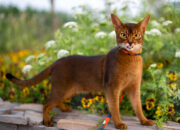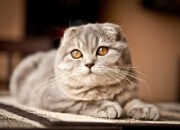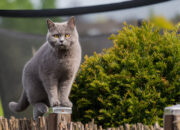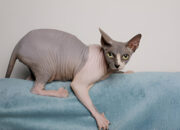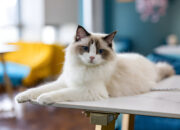Maine Coon Cat – The Ultimate Guide to the Gentle Giant of the Cat World
H2: How about the Maine Coon Cat?
The Maine Coon Cat is among the most brilliant and loved cat breeds in the world. With their huge size, soft, plushy fur and dog-like attitude, this breed is commonly noted as “the gentle giant” of cat world. In addition to their royal looks, Maine Coons are loving, smart, and playful, as well as fiercely loyal.
The Maine Coon Cat with Historical Background and Origin
THE WHITE GIANTS OF MYSTIC ORIGINS AND LEGENDS
The Maine Coon’s origins are shrouded in mystery and legend. One is that the breed originated from a domestic cat’s mating with a raccoon, even though that could not be a genetic possibility. Another is that Viking explorers introduced long-haired cats to North America, where they bred with local cats to give rise to the Maine Coon.
Endemic (in the U.S.)
The Maine Coon is among the few naturally occurring breeds of domestic cat in North America. They were originally found in Maine and were working cats on farms, where they kept down the populations of rodents. Maine even designated the breed as its official state cat given its rich historical connections.
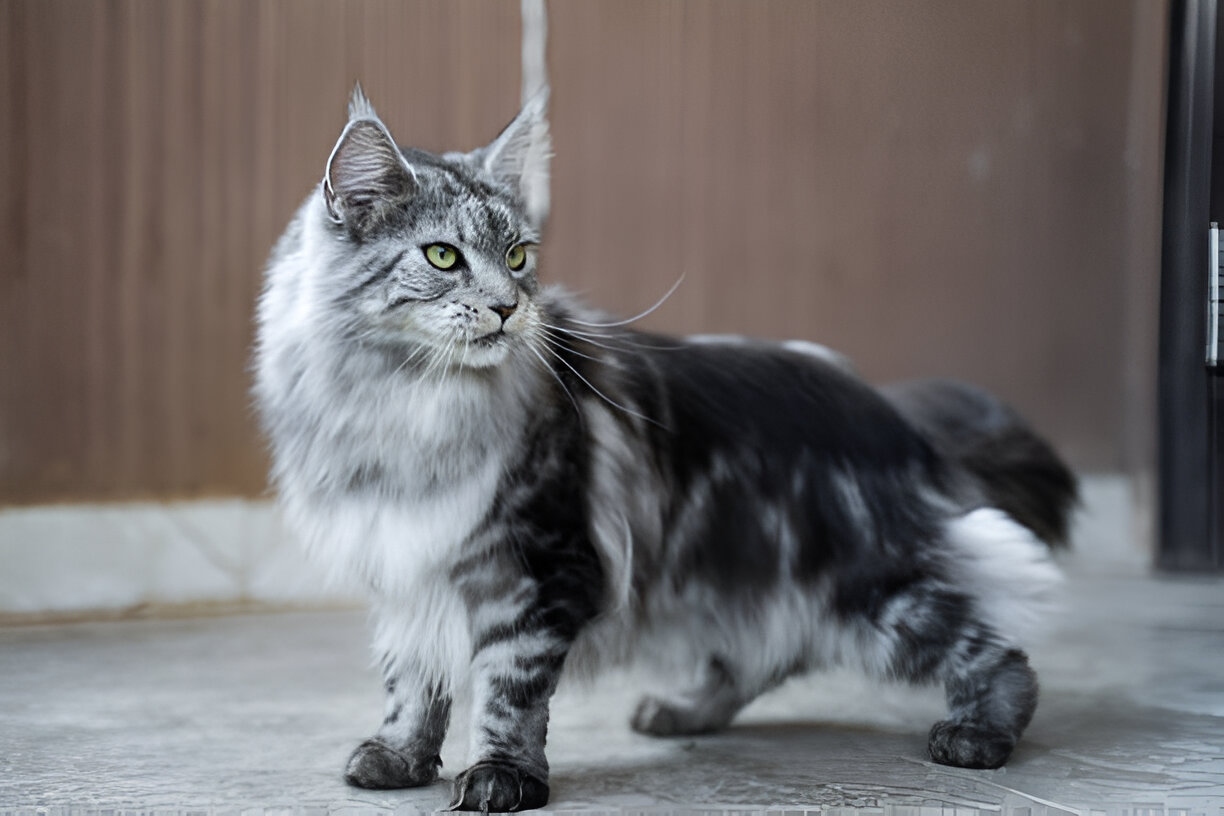
Physical Description of the Maine Coon
Size and Structure
Maine Coon is the largest domestic cat breed.
- Weight Male: 13–18 pounds (5.9–8.2 kg)
- Female Weight: 8–12 pounds (3.6–5.4 kg)
- Length: Up to 40 inches
- Size: 10–16 inches at the shoulder
They are stocky and muscular with big paws and tufts of fur, and a long, fluffy tail resembling a raccoon’s.
Coat and Color Variations
Their coat is dense, double-layered and water-repellent — which makes sense given they are from the cold country. It’s longer, too, around the neck and chest and on the tail.
Popular coat colors include:
- Brown Tabby
- Black
- Silver
- Red
- Cream
- Blue
- Calico
- Smoke
- White
Eyes and Ears
- Eyes:Big, expressive – the color in most cases other than blue or white is green, gold or copper blue (which is partic. noticeable on their feet if a Maine coon is white)
- Ears: Big, pointed, Lynx tips at the ends—this is one of their most unique characteristics
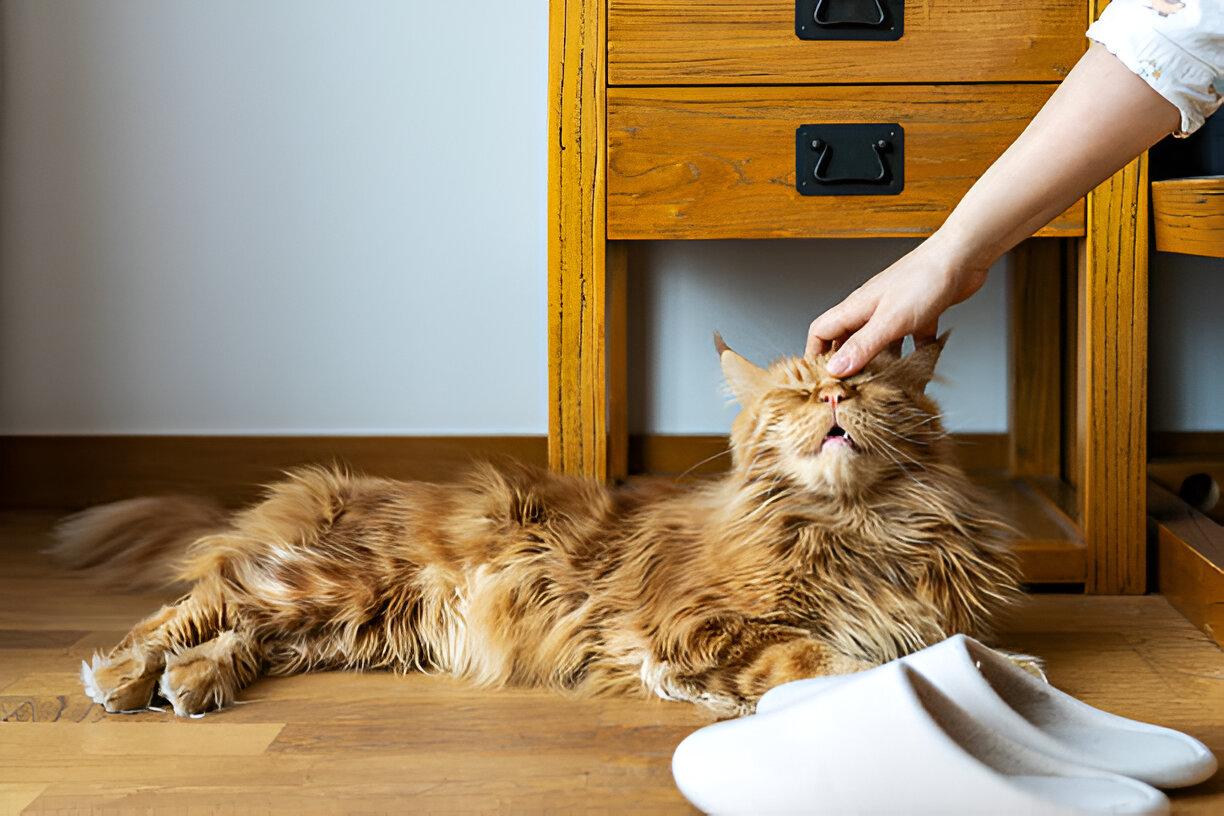
The Maine Coon Cat: Temperament and Personality
The Gentle Giant Nature
Gentle giants Despite their size, Maine Coons are sweet, gentle and laid back. Frequently referred to as ‘dogs of the cat world’ as they will often trail their owners from room to room, and seek human companionship.and love to play fetch.
Intelligent and Curious
Maine Coons are very intelligent and playful. They can be taught tricks, solve puzzle toys and are often easy to leash-train. Their intelligent brains make them amenable to training and responsiveness to people.
Family Friendly and Social They are family-oriented, including spending time with family.
These cats are great with kids of all ages and friendly with other cats, and they even do well with dogs. Their playful and calm nature make them as great with families as they are with singles, and seniors.
The Maine Coon Cats’ Grooming Requirements
Brushing and Coat Care
Maine Coons require frequent grooming because of their long fur:
- Frequency: 2–3 times a week
- Equipment: Steel comb, slicker brush
- Key Areas: Belly, armpits, neck ruff—those will mat first
- Maine Coons do not shed much for brushings despite their long hair.
Bathing and Hygiene
- Bathing: Periodic (every few months)
- Clipping of Nails: all the 2–4 weeks
- Ear Cleaning: Monthly
- Dental Care: Brushing weekly is advisable for dental disease prevention
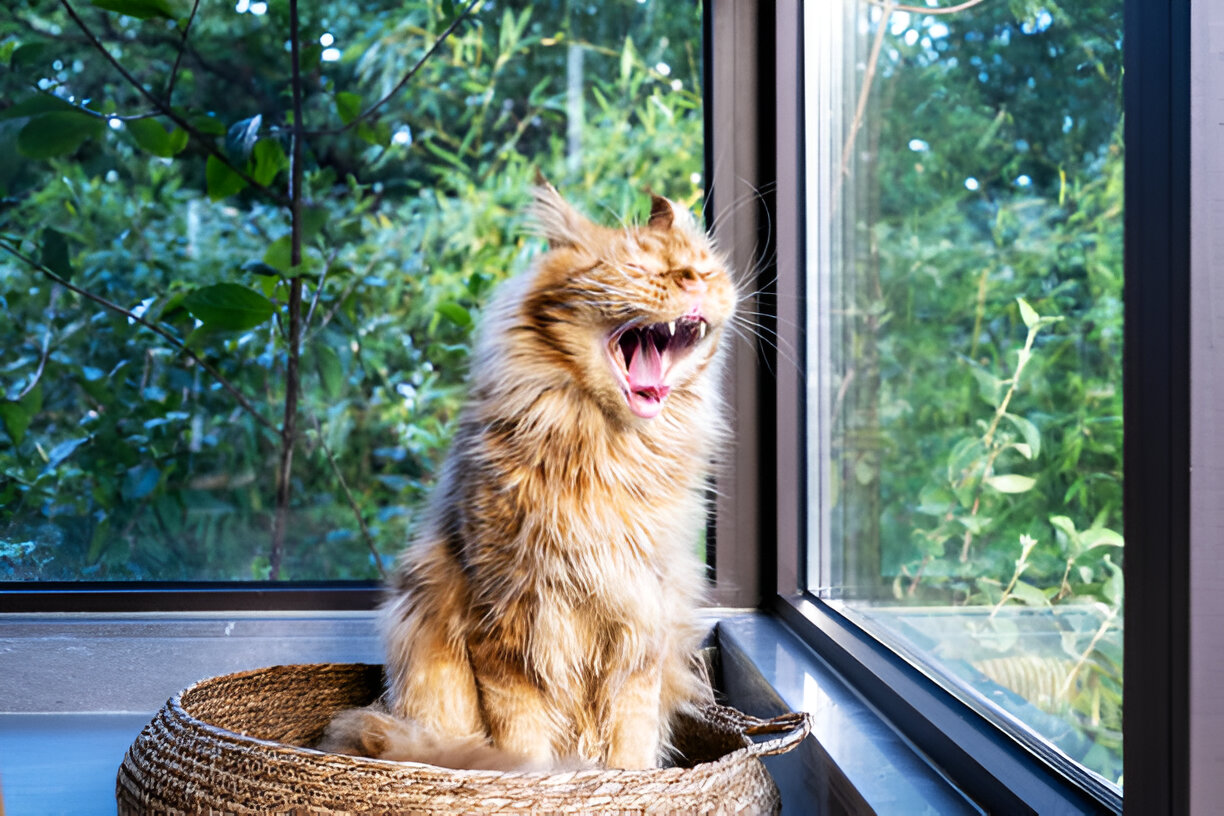
Feeding and Diet of Maine Coon Cat
Quality Diet Counts Good nutrition is a prerequisite for the prevention of depression.
- Active and large, Maine Coons require a nutrient-dense food.
- As for the protein 40-50% of their diet (meat or fish)
- Fat: Modest amount for energy[7]
- Taurine: An amino acid important for heart and eye health
- Don’t let them eat fillers such as corn, wheat and soy in their food.
Feeding Schedule and Tips
- Kittens (up to 1 year): 3–4 small meals a day
- Adults: 2 meals per day
- Water: Always Fresh and Clean
- Control portion: Prevention of obesity and weight management for indoor cats
Most Prevalent Health Problems in Maine Coon Cats
Hereditary and Genetic Conditions
- Although Maine Coons are typically healthy cats, they may experience:
- HCM : Hypertrophic Cardiomyopathy (thickening of the heart walls)
- Hip Dysplasia Their joints become abnormal, particularly in bigger cats.
- Spinal Muscular Atrophy (SMA) – Muscle wasting that causes loss of muscle control.
- Polycystic Kidney Disease (PKD) – clog up the works of the kidneys
Preventive Health Care
- Routine veterinarian checkups (minimum of once a year)
- Genetic testing if purchasing from a breeder
- Vaccinations and deworming
- Standard oral care to prevent gum disease
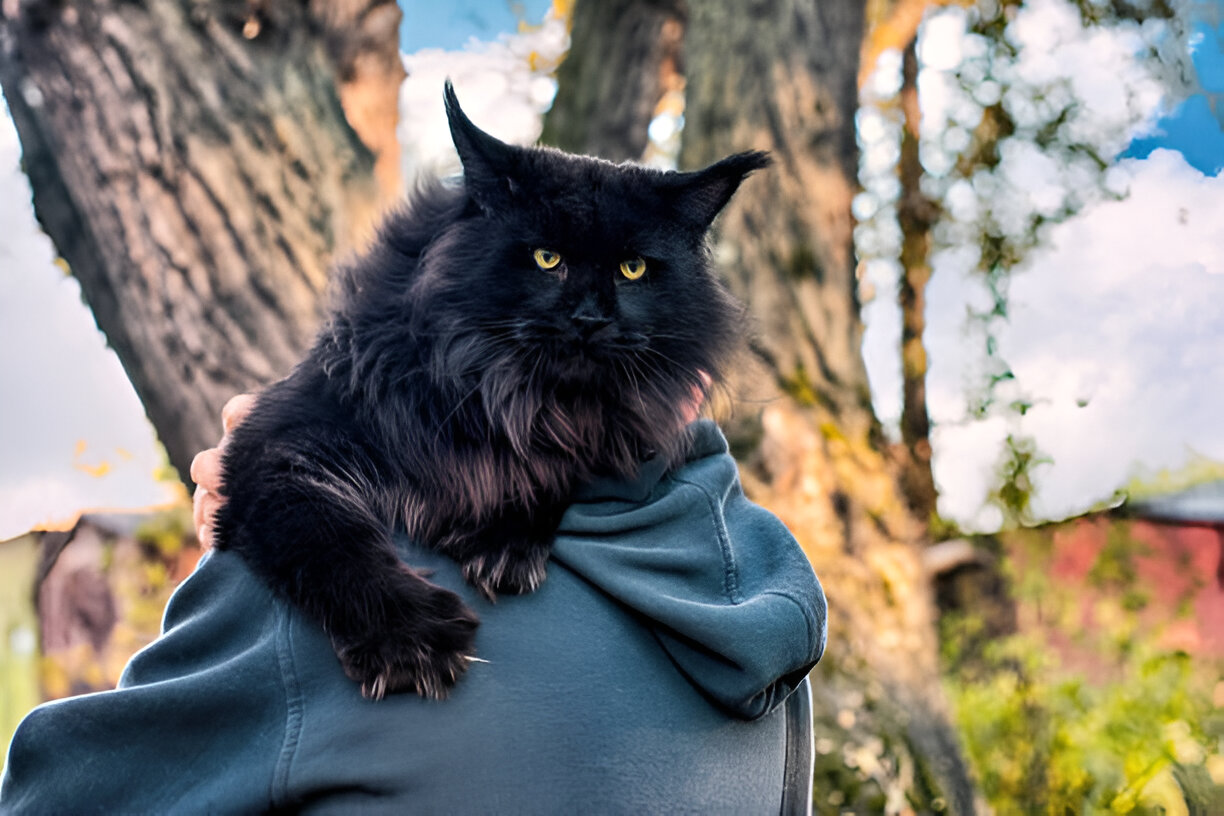
The Life Span of the Maine Coon Cat
What is the Lifespan of a Maine Coon?
Most Maine Coons have a lifespan of around 12–15 years and many live well into their late teens or early 20s with the proper care. Routine veterinary care, proper nutrition,and intellectual engagement can make them live longer.
Maine Coon Cat Behavior and Training
Trainable Like a Dog
“Main Coons are also trained to do whatever you want them to… (sort of).” You can teach them to:
- Come when called
- Sit or high-five
- Use the litter box properly
- Walk on a leash
It’s going to be positive reinforcement that gets results. Treats, praise and toys!!!
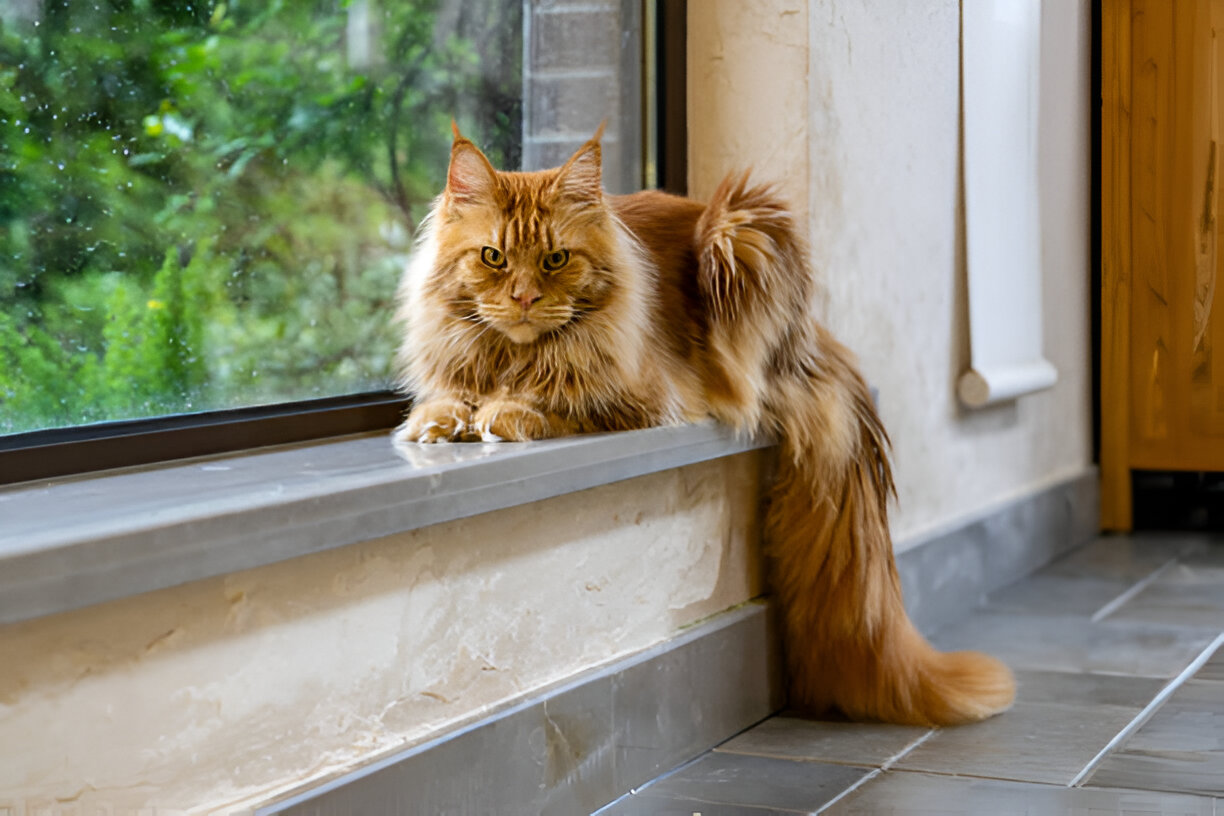
The Perfect Living Space for Maine Coon Cats
Spacious Homes Are Best
Maine Coons need space to roam and stretch. Ideal features include:
- Cat trees or climbing towers
- Window perches for bird watching
- Toys and a scratching post to help keep them busy
- They work in any indoor area (indoor-outdoor supervised).
What to Expect from the Maine Coon Cat Price
Cost of Acquistion (baying or adopting)
- Maine Coon for sale from breeders: $800-$2500
- Kittens for Show: $3000 and up
- Adopting from a shelter or rescue: $100 – $300
Be sure to select ethical breeders who give health guarantees.
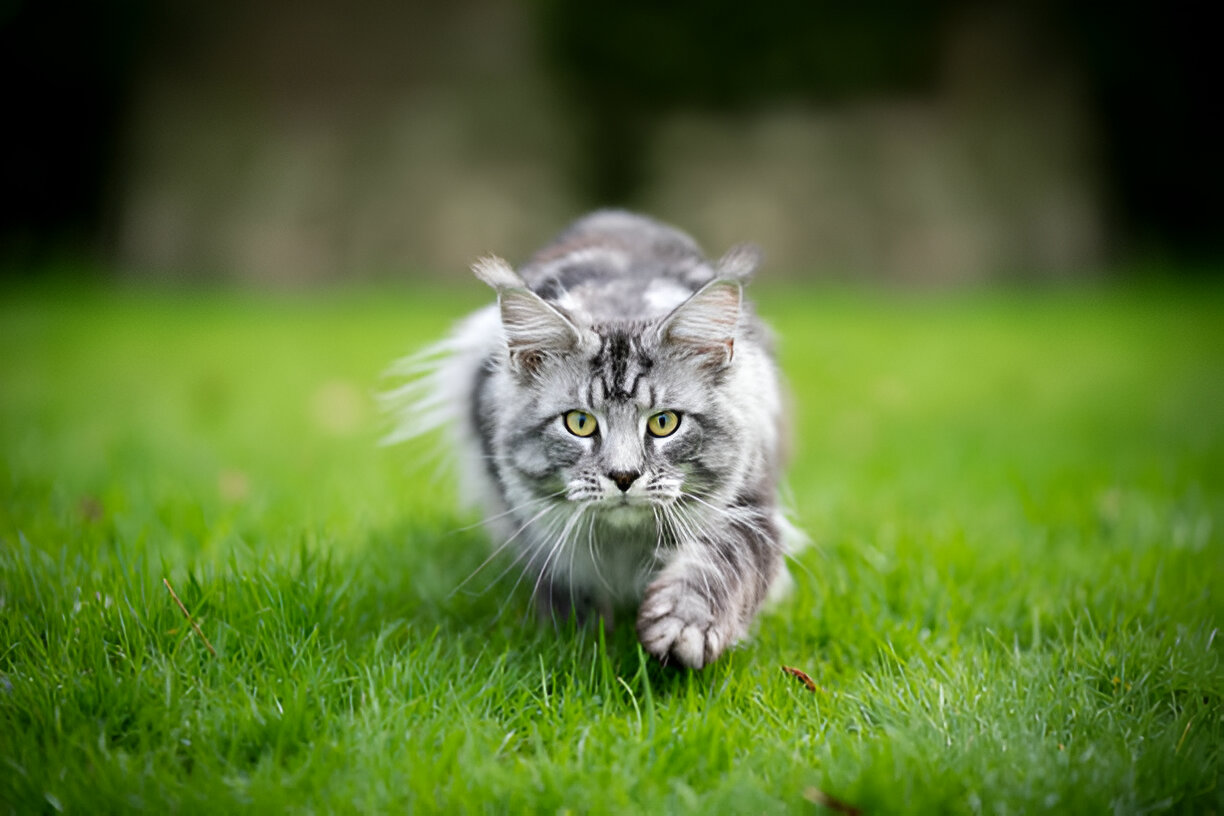
There Are Fun THINGS TO Know About Maine Coon Cats.
Did You Know?
- Maine Coons sound more like birds than feline airstrikes.
- Some Maine Coons are polydactylism, meaning they have more toes than the norm_SWAP(Hold=”affect”).
- They can retrieve toys, similar to dogs
- Full, bushy tails allow them to curl up for warmth
- The Guinness World Record for longest domestic cat is held by a Maine Coon, measuring more than 48 inches!
The Good and the Bad of Maine Coon Ownership
Pros
✅ Gentle and loving
✅ Great with kids and pets
✅ Intelligent and trainable
✅ Majestic appearance
✅ Playful and curious
Cons
❌ High grooming needs
❌ Cost too much up front and over time
❌ Some Hereditary Health issues to watch out for
❌ Needs space and stimulation
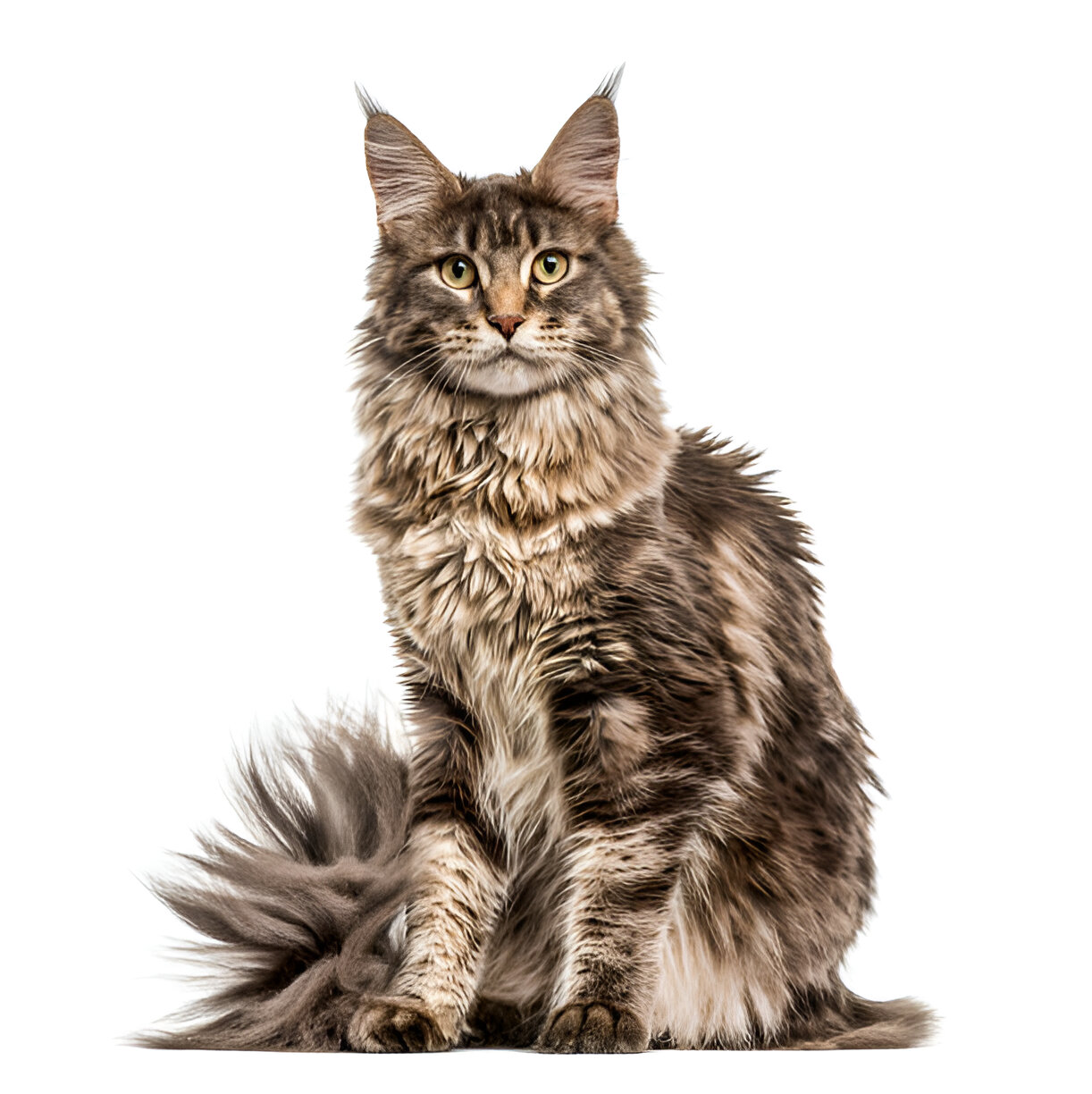
Conclusion – Is the Maine Coon Cat for You?
If you’re in search of a cat that epitomizes beauty, has that jumbo size, exudes intelligence and affection than search no further, the Maine coon cat is perfect. Whether you have kids and live in a house or have a cozy apartment for one, this gentle giant will soon be your faithful and loving companion.
By knowing what they need (both grooming and health), you’ll be able to spend a long, happy life with your majestic Maine Coon friend.
